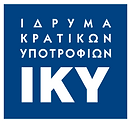Mediterranean Diet: Meal Planning and Preparation
Dear students,
The Mediterranean region, known for its diverse cultures and rich history, has a unique approach to meal planning that reflects its geography, climate, and social customs.
Meal planning in the Mediterranean often begins with a strong emphasis on the use of fresh, local ingredients, seasonal produce, and traditional cooking methods. Additionally, the integration of leftovers into animal feeding and agricultural practices had a significant impact on meal planning in Mediterranean societies, fostering sustainability, efficiency, and a zero-waste approach that are deeply rooted in the region’s culture.
Your mission in this webquest is to become a sustainability warrior and develop how the meal planning and preparation in Mediterranean region resulted not only to tantalize citizens' taste buds but also to nourish their body and respect our planet.
Thus, you will:
-
Unlock the Secrets of Mediterranean Cuisine in means of meals' planning and preparation,
-
Delve into the heart of Mediterranean cooking, uncovering time-honored tips for embracing the spirit of sustainability by incorporating locally sourced and seasonal ingredients into your culinary creations,
so to be able to design a weekly meal plan that captures the essence of the Mediterranean diet, highlighting the overall health benefits and environmental impact of your meal plan!
Take a look to the following video where Frank Lari, investigates the dietary practices of countries like Spain, Italy, and Greece, which boast some of the oldest living communities globally and observes that the Mediterranean approach to food is multifaceted. It's not just about specific ingredients but also about how meals are prepared and enjoyed.
May the video concludes by reinforcing the idea that the Mediterranean diet encourages not only healthy eating but also nurturing relationships, cooking together, and savoring meals with family and friends, all of which contribute to a longer, healthier life, but in our occasion we'll use it for a brainstorming on topics as::
-
the traditional methods of meal planning and preparation that have shaped cultures and diets for centuries,
-
the historical and cultural influences on meal planning, including the role of religious customs and traditions,
-
the way in which seasonal and local ingredients were incorporated,
-
the cooking tips transferred from generation to generation,
-
the way in which meal planning and preparation promoted the "One Health" concept.
Read the video summary here.
Please recover all those described in the video but also your gained knowledge so far and brainstorm giving responses to the following questions:
Which are your observations regarding meals' structure and the ingredients used?
Besides, the use of wood-fired ovens, which other traditional meal preparation techniques have you investigated?
How does the preparation of food in Sardinia reflect their cultural heritage?
What traditional practices regarding food and community did Evo share from his childhood?
Let's conclude with the use of the presentation:
https://view.genially.com/66a90e92f65290fb65e1ff52
Please give your responses to the following Tricider: "How could meal planning help to improve the current scenario on food for overall health in the Mediterranean region?"
https://www.tricider.com/brainstorming/2bmHTnYAwW7
When our behavior leads to food waste, we’re also wasting our money and the planet’s resources.
Do you waste our planet's resources? Take part to this poll padlet:
https://padlet.com/meddiet4health/food-waste-polls-blqbx035tp4q3er8
To reduce our “foodprint” we all need to take action in our homes, supermarkets and communities. For this reason, the rationale of educating consumers on Mediterranean principles is to spread and enhance a sustainable eating pattern that ensures food security, promotes healthy lifestyles, and shares good living practices (i.e., seasonality, conviviality, and an active lifestyle) by facilitating the achievement of the Sustainable Development Goals (SDGs) set by both the United Nations 2030 Agenda and the EU Commission Green Deal. Indeed, as concern for sustainability is growing, the Mediterranean diet has been widely identified as a promising model with benefits for both human and environmental health.
In this manner, meal planning is a crucial aspect of maintaining a healthy diet, especially when adhering to the Mediterranean diet. By planning meals weekly, individuals can minimize food waste, and save time and money, ensuring a balanced intake of nutrients. Additionally, having a structured meal plan helps in making healthier choices, as it reduces the temptation to opt for fast food or processed meals.
Before you start planning, take a look on the following video:
and these resources:
https://my.clevelandclinic.org/health/articles/16037-mediterranean-diet
https://thedomesticdietitian.com/meal-planning-guide/
Tips for meal planning
Before diving into meal planning, it is essential to assess personal dietary needs and preferences. Consider the following questions:
-
What are your dietary restrictions? Identify any allergies or intolerances.
-
What foods do you enjoy? Make a list of favorite Mediterranean ingredients such as tomatoes, olives, chickpeas, or eggplant.
-
How many meals do you need to plan? Determine the number of breakfasts, lunches, dinners, and snacks for the week. ....Search for recipes that incorporate the basic ingredients of Mediterranean Diet and maintain a focus on whole foods. Websites, cookbooks, and Mediterranean cooking classes can provide further inspiration.With a list of preferred foods and dietary needs in hand, the next step is to explore Mediterranean recipes. Once you have selected recipes, create a weekly menu. Organize the meals by day and meal type, and post your plans to the following padlet, together with your shopping list based on the ingredients needed for the week. Organize the list by category (fruits, vegetables, grains, proteins, etc.) to make grocery shopping more efficient. *Here are a few popular dishes to consider:*Greek Salad: A refreshing mix of cucumbers, tomatoes, red onion, olives, and feta cheese, drizzled with olive oil and lemon juice* Chickpea Stew: A hearty dish made with chickpeas, tomatoes, spinach, and spices, served with whole-grain bread. *Grilled Fish Tacos: Lightly seasoned fish grilled to perfection and served with cabbage slaw and a yogurt sauce *Vegetable Ratatouille: A colorful mix of zucchini, eggplant, bell peppers, and tomatoes, simmered with herbs.
https://padlet.com/meddiet4health/meal-planning-blog-o7eln3f1rx49qbfx





